As Halloween creeps closer, Moscow residents are celebrating with COVID-19-safe decorations. Our photographers explored town to find the spookiest decorations they could.
Dudley Household
Rob Dudley, University of Idaho graduate and longtime Moscow resident, decorates for Halloween every year. He went all-out this year, scaling up his normal decorations since he can’t give out candy to trick-or-treaters this year.
A wrecked car is parked next to a tree on his lawn. A stuffed animal, covered in a wispy dress, billows in the wind on the swing nearby.
“I just hope to put a smile on someone’s face,” Dudley said.
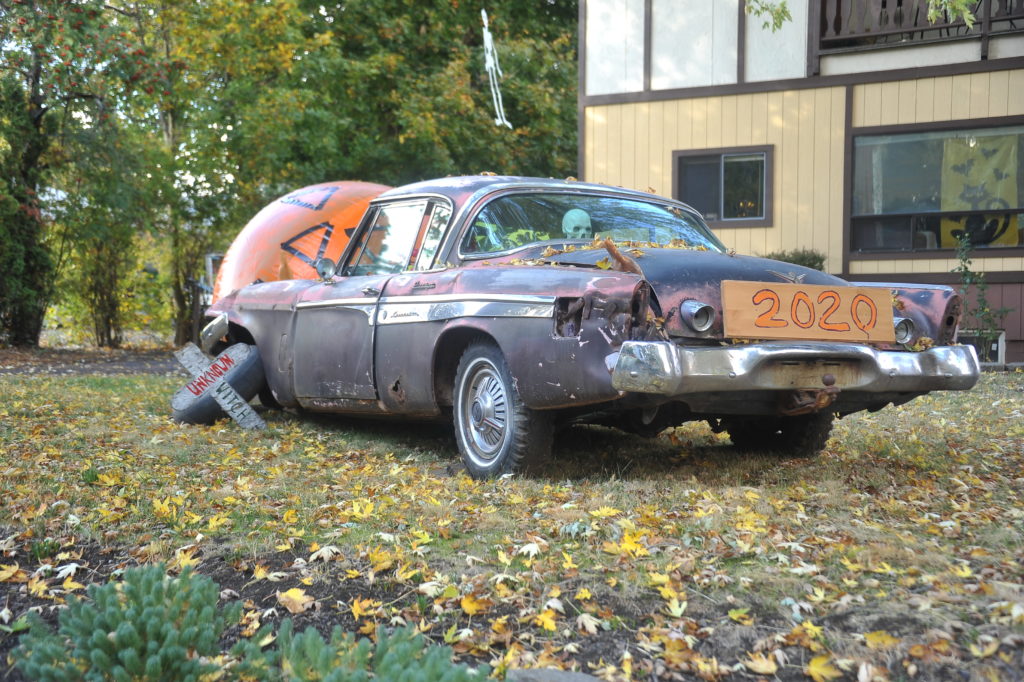
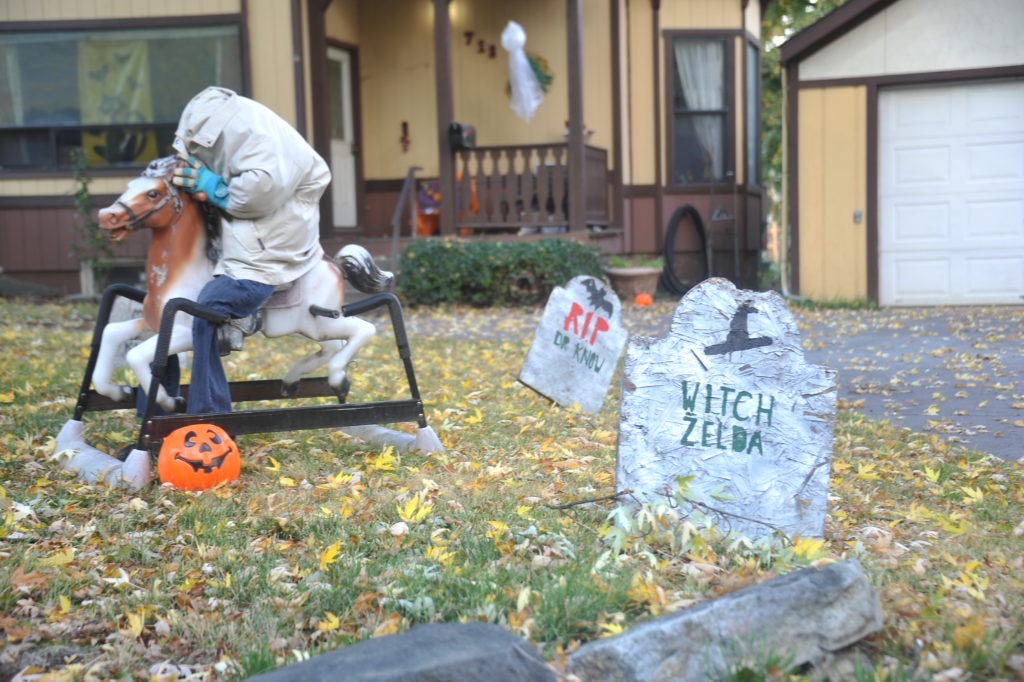
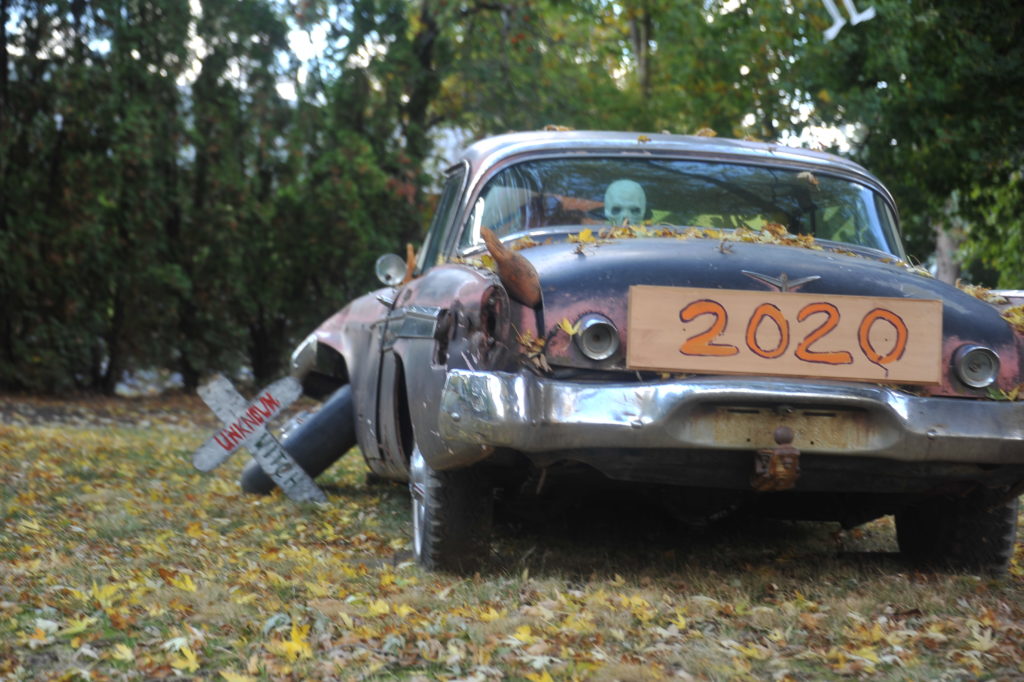
Vogl Household
The Vogl family also got in the Halloween spirit. Their ten-year-old daughter adores decorating for Halloween, so the family gathered pumpkins and added a variety of decorations to their existing collection.
“My daughter loves to decorate for Halloween, so we have continued to add more decorations every year, Ms. Vogl said.
Pumpkins, a scarecrow and a fall-themed wreath decorate the front door. A fabric ghost hangs from the tree nearby.
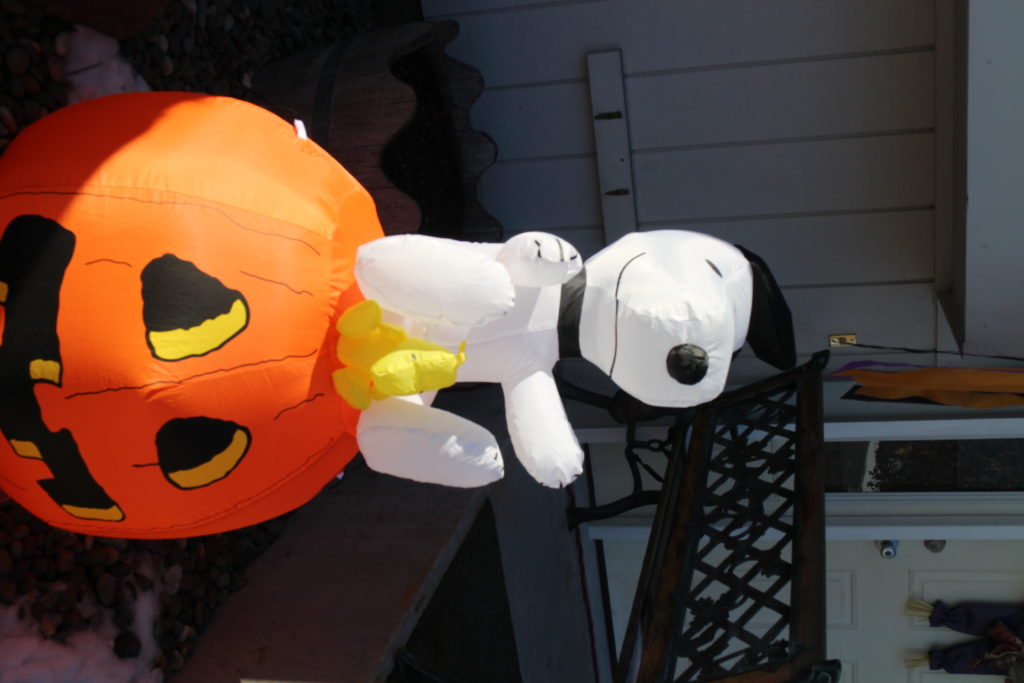
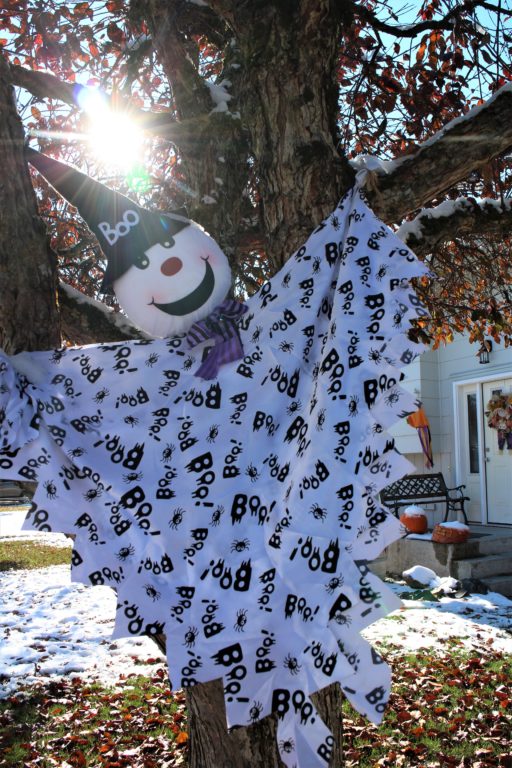

Moser Household
Linda and Steve Moser leap head-first into Halloween festivities. This year’s decorations stand out even more at night, as strands of orange and green lights grace the home’s entryway.
“My wife loves to decorate for Halloween every year,” Steve Moser said. “This year was no different.”
A skeleton taped to the bright red front door holds a sign reminding visitors to wash their hands when they enter. Spider webs, skulls and Halloween-themed tinsel also join the themed lights to create a truly spooky entrance.

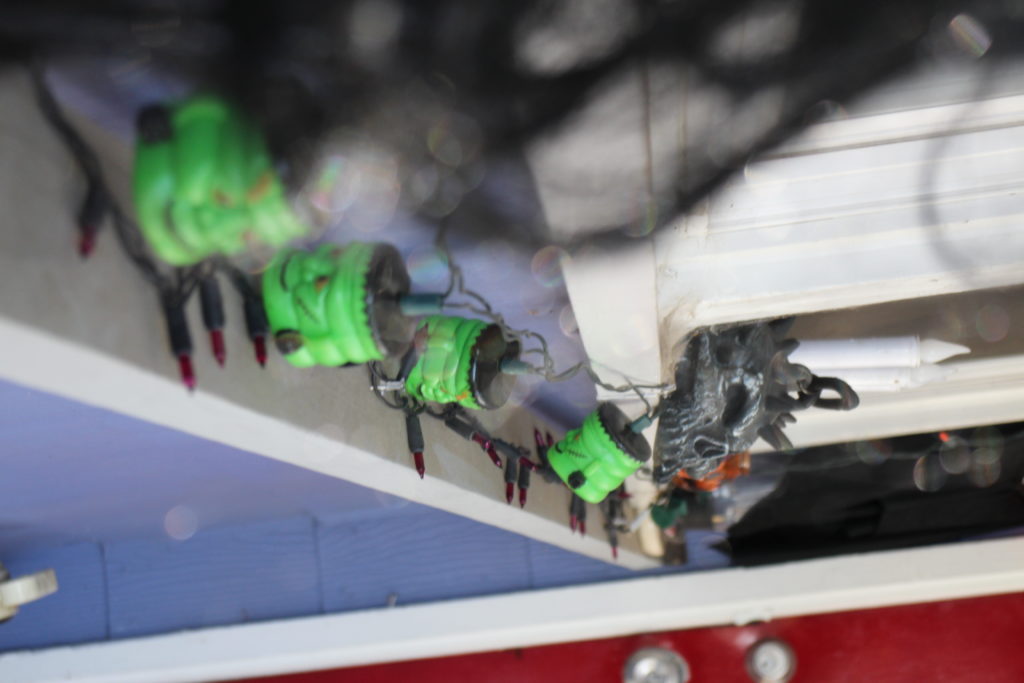
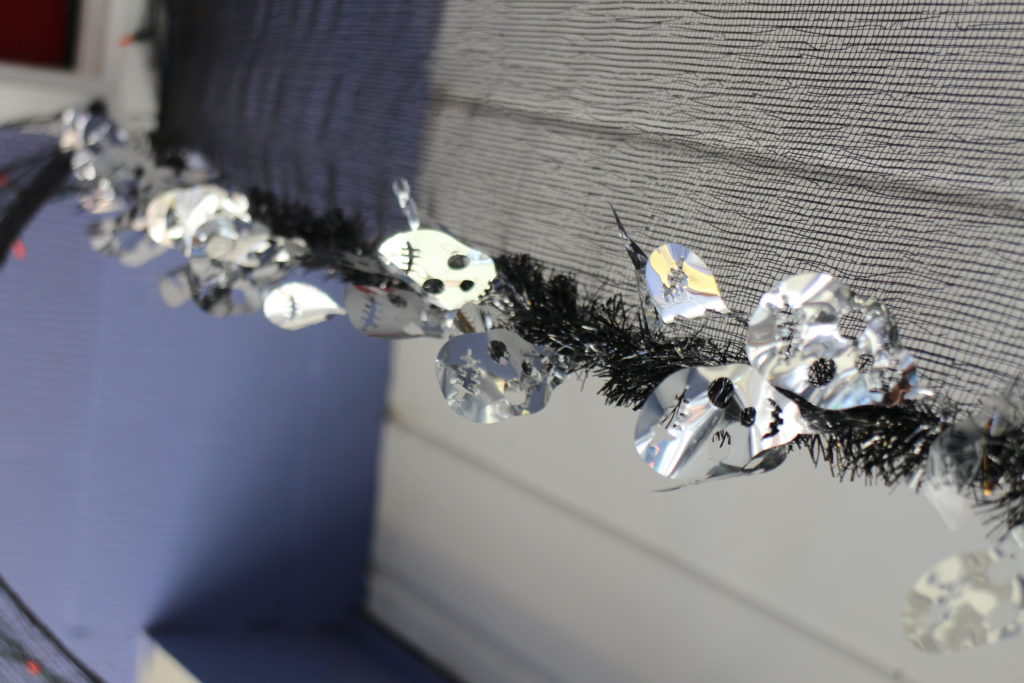
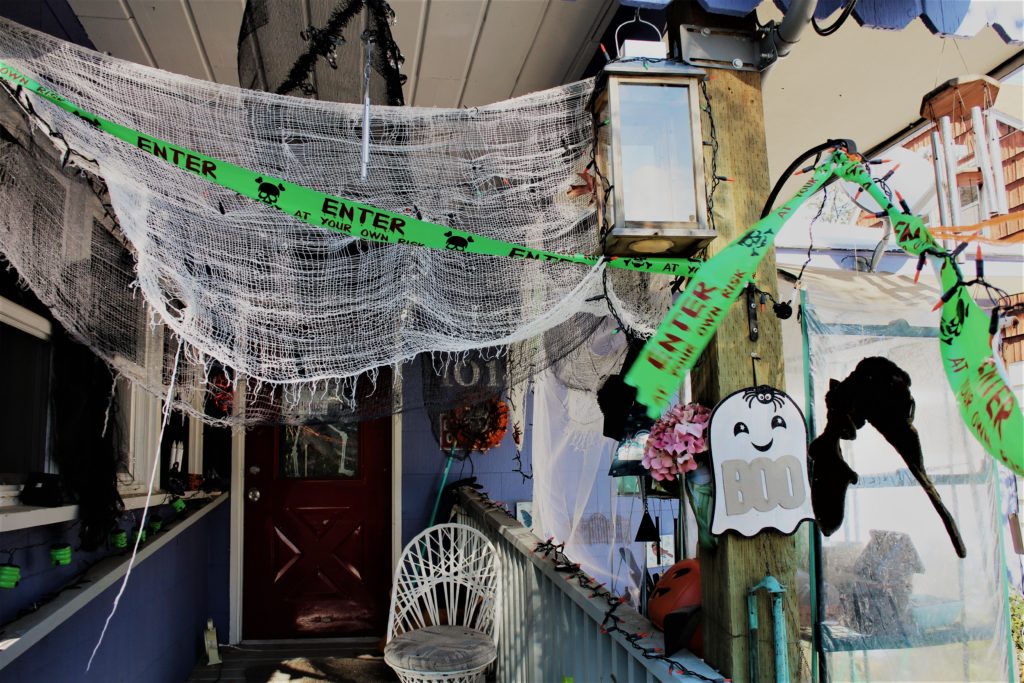
Ryan Abajero and Monica Carrillo can be reached at [email protected].

j
Before you use the word Spooky in your articles A" spooky signpost decorates the Dudley household's lawn | Ryan Abajero" read the history behind the word. Is this paper allowing the use of a past racist word? However, there are connotations associated with the word "spooky" that are much more horrifying than the ghosts to which the term usually refers. According to Merriam-Webster, the word "spooky" is defined as, "relating to, resembling or suggesting spooks." A further break-down of "spook" gives way to the meaning, "ghost, specter" or "an undercover agent: spy." But the Dutch word describing apparitions, which first came into use around the 19th century, took on a more sinister meaning around World War II, when white American soldiers started referring to their Black counterparts as "spooks." Originally, pilots of the Tuskegee Institute—derived of the first Black military aviators in the U.S. Army Air Corps—were called the "Spookwaffe"—a play on the German term "waffe," which means weapon or gun. When airmen returned from their posts with the nickname, white Americans caught wind of the name and began linking the term "spook" to blackness, thus resulting in the word transitioning into a racial slur and its derogatory use. Author Sam Greenlee did attempt to revive the word's initial definition with his 1969 book The Spook Who Sat By the Door, which was later turned into a feature film in 1973. The plot follows the fictional story of the first Black CIA agent Lawrence Cook, and the reference of the word "spook" serves as a reference to the fact that he is a spy, although the term is also used in a racially offensive way by those who Lawrence encounters throughout the book and movie. Back in 2018, an elementary school in North Carolina came under fire when a student came home with new vocabulary words to memorize—"spook" and "gook," the latter of which is an offensive term to people of East and Southeast Asian descent. That same year, the Houston Museum of Natural Science had to issue an apology to its members after a mass email was sent with the subject line: "Party With Spooks." Even Target has faced backlash for using the word. The retailer was forced to remove a toy dubbed "Spook Drop Parachuters" from its shelves and inventory after people complained of its racist meaning in 2010.